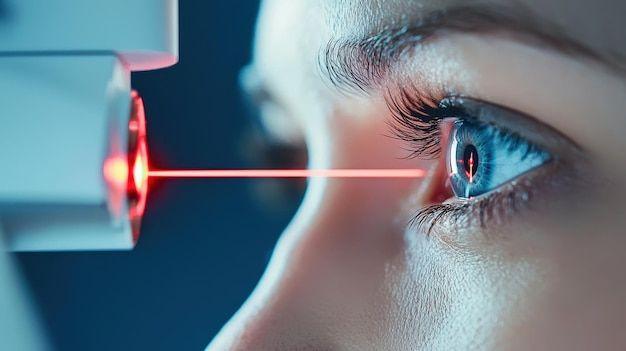
Anxiety & Social Anxiety: Symptoms, Causes & Treatment | Best Clinic Abroad
Understanding Anxiety and Social Anxiety: Symptoms, Causes, and Treatment OptionsBy Best Clinic Abroad – Global Medical Tourism & Mental Health SupportAnxiety is one of the most common mental health conditions worldwide, yet it is often misunderstood, underestimated, or dismissed. In today’s fast-paced, highly connected society, an increasing number of people are experiencing persistent worry, fear, and emotional overwhelm—often without fully understanding what they are going through.At Best Clinic Abroad, we believe that informed patients make more informed, stronger, and healthier decisions. This comprehensive guide is designed to explain anxiety and social anxiety clearly, medically, and compassionately—without exaggeration or fear—so individuals can recognize symptoms early and seek the right kind of help. What Is Anxiety?Anxiety is the body’s natural response to perceived danger or stress. It is a built-in survival mechanism that prepares us to react to challenges by increasing alertness and focus.Occasional anxiety is normal. However, anxiety becomes a medical concern when it is:Excessive or persistentDifficult to controlDisproportionate to the situationInterfering with daily lifeWhen anxiety continues even in the absence of real threats, it may indicate an anxiety disorder that requires professional attention. Types of Anxiety DisordersAnxiety disorders are not all the same. They include several clinical conditions, such as:Generalized Anxiety Disorder (GAD): Ongoing and excessive worry about daily mattersPanic Disorder: Sudden episodes of intense fear accompanied by physical symptomsSocial Anxiety Disorder: Fear of social interactions and being judgedSpecific Phobias: Intense fear of specific objects or situationsEach type affects individuals differently, but all can significantly impact emotional well-being and quality of life if untreated. What Is Social Anxiety and How Is It Different from Shyness?Social anxiety is not simply shyness or introversion. It is a recognized mental health condition marked by intense fear of social situations where one may be observed, judged, or evaluated by others.Unlike shyness—which may improve with familiarity—social anxiety persists and often worsens over time. Individuals with social anxiety may avoid situations they want or need to participate in, such as meetings, social gatherings, or speaking in public.This avoidance can limit personal growth, career opportunities, and relationships. Common Symptoms of AnxietyAnxiety can affect both the mind and body. Common symptoms include:Constant worry or overthinkingRestlessness or feeling on edgeDifficulty concentratingSleep disturbancesMuscle tensionFatigueIrritabilityThese symptoms may fluctuate but tend to persist over time in anxiety disorders. Common Symptoms of Social AnxietySocial anxiety has specific emotional and physical symptoms, including:Fear of embarrassment or humiliationAvoidance of social interactionsDifficulty speaking or making eye contactExcessive self-consciousnessSweating, trembling, nausea, or rapid heartbeatAnxiety days or weeks before social eventsThese symptoms are not intentional behaviors—they are automatic responses driven by fear and stress. What Causes Anxiety and Social Anxiety?Anxiety disorders develop due to a combination of factors rather than a single cause.Biological FactorsGenetic predispositionBrain chemistry and neurotransmitter imbalancePsychological FactorsNegative thought patternsLow self-esteemPoor stress-coping mechanismsEnvironmental FactorsChildhood experiences or traumaChronic stressSocial pressure or performance expectationsUnderstanding these causes helps reduce stigma and reinforces that anxiety is a medical condition—not a personal weakness. Anxiety vs Normal Stress: Understanding the DifferenceNormal StressAnxiety DisorderTemporaryPersistentSituation-basedOften without clear causeResolves naturallyEscalates or lingersDoes not limit lifeInterferes with daily functioningWhen anxiety controls decisions, behaviors, or emotions over time, professional evaluation is recommended. How Anxiety Affects Daily Life and RelationshipsAnxiety can quietly influence many areas of life, including:Work performance and career growthAcademic achievementSocial connections and intimacySelf-confidence and decision-makingLeft untreated, anxiety may lead to isolation, burnout, or depression. Early recognition and care are essential for long-term well-being. Medical and Psychological Treatment Options for AnxietyAnxiety disorders are highly treatable when addressed correctly.PsychotherapyTalk therapy, particularly structured psychological therapies, helps individuals understand and change anxiety-driven behaviors and thoughts.MedicationIn moderate to severe cases, medication may be prescribed by a qualified physician to help regulate mood and anxiety responses.Treatment plans are most effective when tailored to the individual and supervised by experienced professionals. Cognitive Behavioral Therapy (CBT) for Anxiety and Social AnxietyCognitive Behavioral Therapy (CBT) is one of the most effective, evidence-based treatments for anxiety and social anxiety.CBT helps individuals:Identify negative thought patternsChallenge unrealistic fearsGradually face anxiety-provoking situationsDevelop healthier coping strategiesCBT focuses on long-term skills rather than temporary relief. Lifestyle and Self-Help Strategies to Manage AnxietyWhile professional care is essential for many, daily habits can support recovery:Regular physical activityConsistent sleep routinesMindfulness and breathing techniquesBalanced nutritionReducing caffeine and stimulantsSmall, consistent changes can significantly improve emotional resilience over time. When Should You Seek Professional Help for Anxiety?Professional help should be considered when:Anxiety interferes with daily functioningAvoidance behaviors increasePhysical symptoms become frequent or intenseSelf-help strategies are no longer effectiveSeeking support early often leads to better outcomes and faster recovery. How Best Clinic Abroad Supports Mental Health TreatmentAt Best Clinic Abroad, we understand that mental health care requires trust, discretion, and access to qualified professionals. As a global medical tourism company, we connect individuals with reputable clinics and experienced mental health specialists across countries.Our role is to support informed decision-making by providing access to high-quality care options tailored to medical, cultural, and personal needs. Final Thoughts: Living Well with Anxiety and Social AnxietyAnxiety and social anxiety do not define a person—but they do require understanding and care. With accurate information, professional guidance, and the right treatment approach, individuals can regain control, confidence, and quality of life.At Best Clinic Abroad, we believe that knowledge is the first step toward healing—and every individual deserves access to compassionate, effective mental health care.





